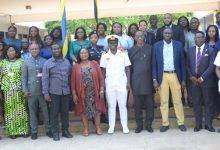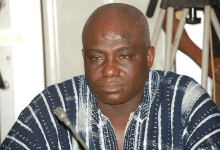WATER is said to be the most important substance on earth. All plants and animals must have water to survive. Without water, there would be no life on earth.
Apart from drinking it to survive, people have many other different uses for water. It is also used in many other ways such as the growth of crops and manufacture of goods.
Apart from cooking, washing of bodies and clothes, water is also used for recreation.
It is, therefore most important that potable water should be readily available at all times for people to use.
Recognising this fact, governments have built dams across the country to provide clean drinking water to the people.
One such dam, the Weija Treatment Plant belonging to the Ghana Water Company Limited, was built to supply drinking water to the people of Accra West and beyond.
Constructed in 1978, the dam has served as one of the reliable water treatment plants that supplied up to 80 per cent of water consumed in Greater Accra and parts of the Central Region.
For years, the dam has treated and supplied water to the inhabitants without worries.
Unfortunately, in recent times and due to increase in population as well as lack of maintenance, the dam has faced many challenges.
As a result, there has been intermittent interruption of water supply due to dysfunctional filters at the plant.
The Water Quality Assurance office of the GWCL at the Weija Headworks, Mr John Suobogbiree, painted a very disturbing picture of the dam when he said four out 12 filters were out of order.
The situation, he said was increasingly responsible for the limited production and intermittent disruption in water supply in the region.
“Technically we have only seven filters operating now. Due to the high pressure on the remaining eight filters, we isolate one every month for cleaning which takes about eight days before coming into full operation and that sometimes lead to low pressure in water supply,” he said.
The officer who was speaking in an interview with the Ghanaian Times on Monday, during a familiarisation tour of the facility, warned of dire consequence if steps are not taken to repair the defects and reconstruct earlier damage filters which remove impurities from the water.
He estimated the cost of replacing the broken down filters at $35million and warned that if immediate steps are not taken to repair the damaged parts, the dam may breakdown.
Although the amount of money quoted for the repair of the damaged parts may appear to be high, the consequences of a breakdown of the dam are dire.
The Ghanaian Times, is therefore, appealing to the government and the GWCL to as a matter of urgency, undertake repair works in order to restore the dam to its full capacity.
We must not allow the dam to breakdown as that would bring untold hardship to the people who depend on the dam for potable water.




